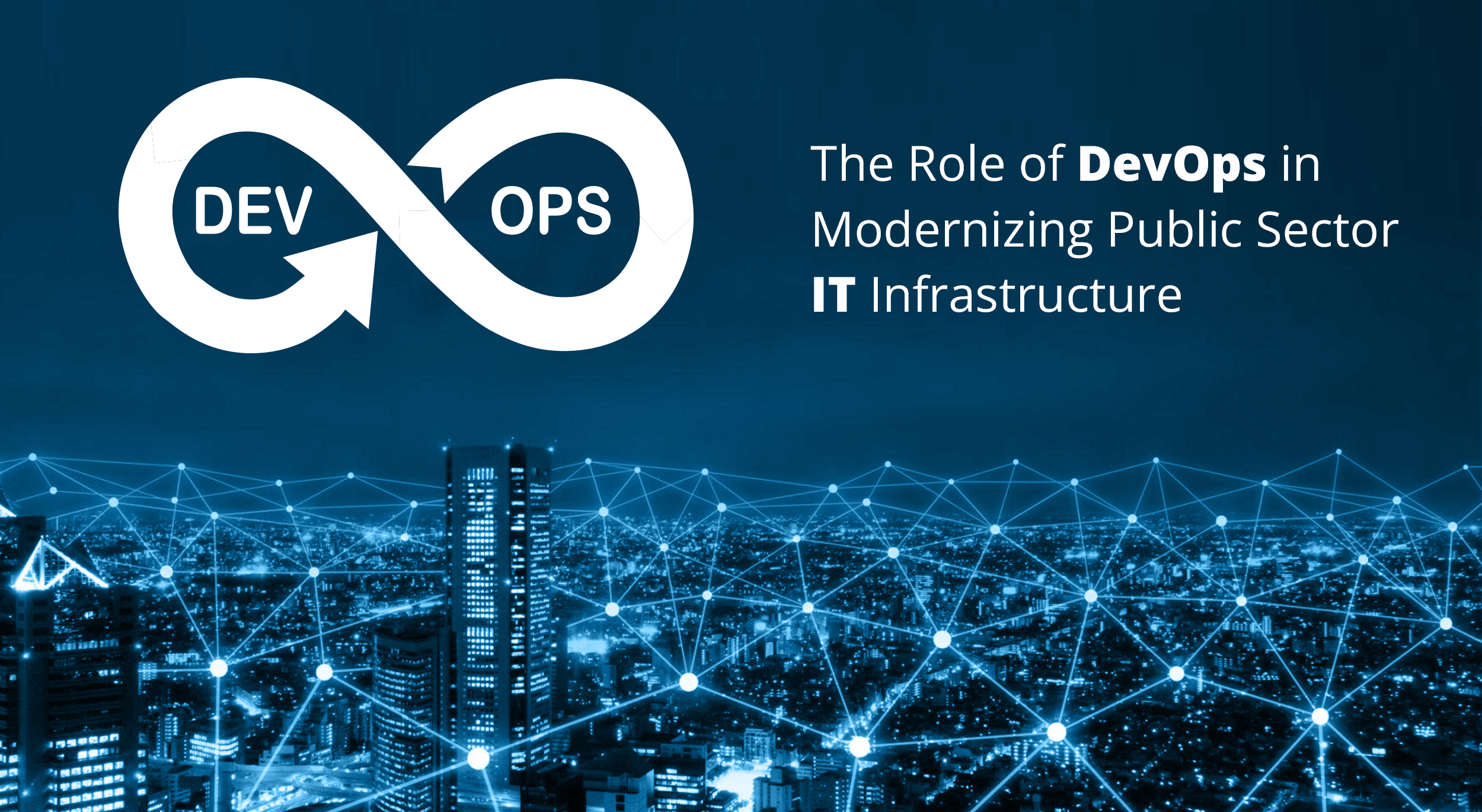As society becomes more reliant on technology, the public sector must keep up with the pace of change to provide essential services to citizens. However, public sector organizations are often hindered by outdated IT infrastructure and cumbersome processes. This is where DevOps comes in, providing a framework for modernizing IT infrastructure and improving citizen services. In this article, we’ll explore the role of DevOps in modernizing public sector IT infrastructure and how it can benefit public sector organizations.
DevOps is a set of practices that combines software development and IT operations to improve the efficiency and effectiveness of software delivery. DevOps emphasizes collaboration and communication between developers and operations teams, automation of processes, and continuous delivery and deployment of software.
The public sector can benefit greatly from adopting DevOps practices. Here are some of the ways DevOps can help modernize public sector IT infrastructure:
- Agile Development: DevOps emphasizes agile development, which involves rapid prototyping, testing, and iteration. This approach allows public sector organizations to develop and deploy software more quickly and respond to changing citizen needs more effectively.
- Automation: DevOps relies heavily on automation to streamline processes and reduce manual errors. By automating routine tasks, public sector organizations can reduce costs, improve efficiency, and ensure consistency across their IT infrastructure.
- Continuous Delivery and Deployment: DevOps enables continuous delivery and deployment of software, which means that updates and new features can be released quickly and frequently. This approach allows public sector organizations to respond to citizen needs more rapidly and stay ahead of the curve.
- Improved Security: DevOps can also improve security by integrating security into the software development and deployment process. This approach ensures that security is not an afterthought and that vulnerabilities are identified and addressed early on.
- Collaboration: DevOps emphasizes collaboration between developers, operations teams, and other stakeholders. This approach fosters a culture of teamwork and shared responsibility, which can help public sector organizations overcome silos and work more effectively together.
By adopting DevOps practices, public sector organizations can improve the efficiency and effectiveness of their IT operations, streamline processes, and provide better citizen services. As the public sector continues to face new challenges and citizen demands, DevOps can help ensure that IT infrastructure keeps up with the pace of change.
In addition to these benefits, DevOps can also help public sector organizations save money and reduce costs. By automating routine tasks and streamlining processes, public sector organizations can reduce the time and resources required to maintain their IT infrastructure. This can free up resources to invest in new projects and initiatives that can further improve citizen services.
To implement DevOps in the public sector, organizations must undergo a cultural shift that emphasizes collaboration, shared responsibility, and continuous improvement. This shift can be challenging, but with the right tools and support, public sector organizations can reap the benefits of DevOps.
In a nutshell, DevOps can play a critical role in modernizing public sector IT infrastructure. By adopting DevOps practices, public sector organizations can improve efficiency, reduce costs, and provide better citizen services. As society becomes more reliant on technology, the public sector must keep up with the pace of change, and DevOps can help ensure that IT infrastructure keeps pace with citizen demands.
